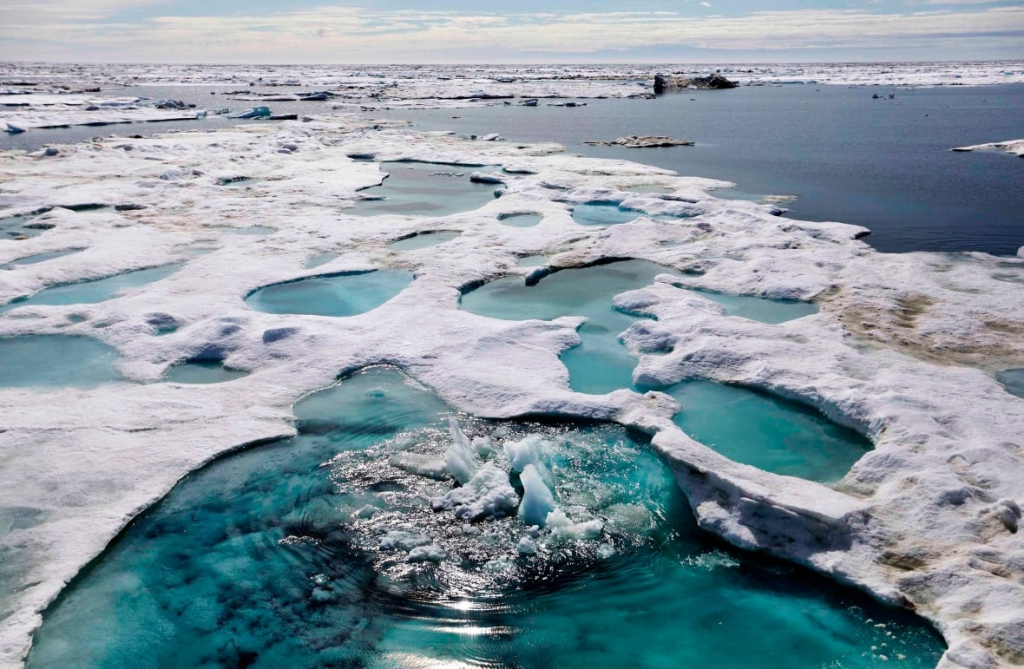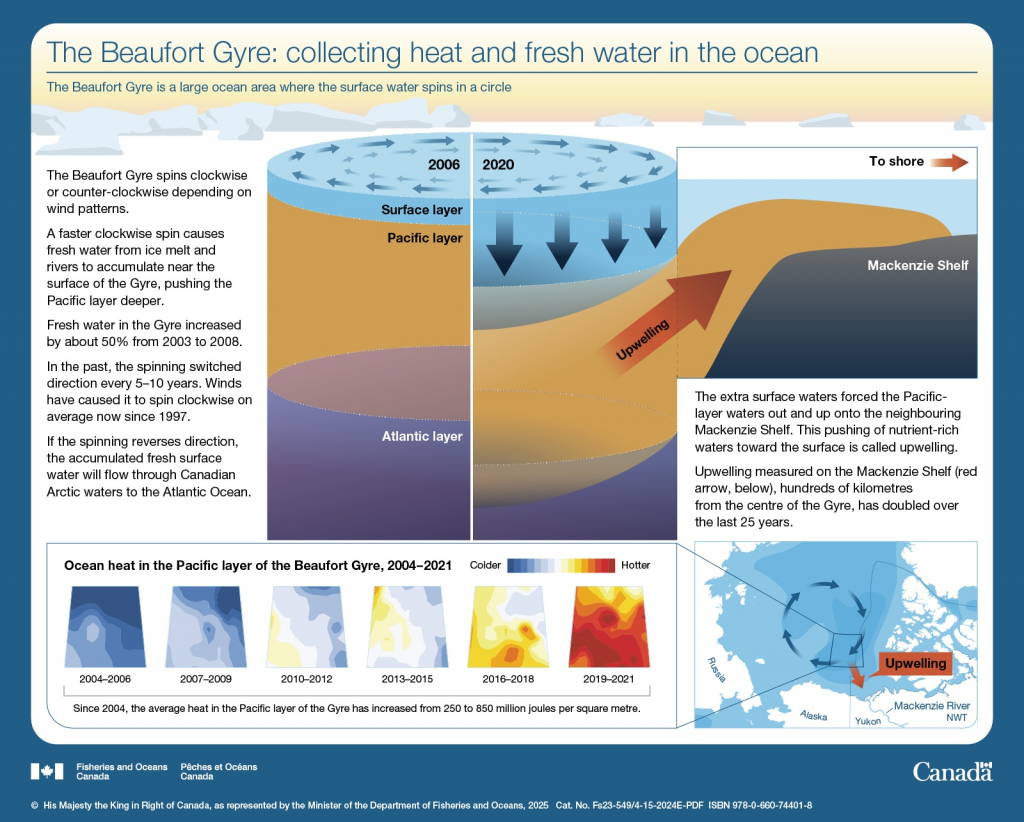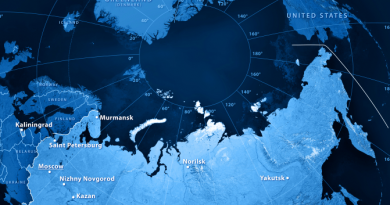Arctic Ocean current could be at risk, research warns of global ripple effects

New research suggests continued global warming could put a major Arctic ocean current in serious trouble, and that the consequences could extend far beyond the North.
Known as the Beaufort Gyre, this swirling current above Alaska and Canada’s western Arctic, accumulates freshwater and helps regulate the temperature and salinity of the region’s waters. But with climate change accelerating, the future is uncertain.
“This gyre decline is predicted both under a high-emission scenario and under an intermediate ‘middle of the road’ emission scenario,” the international research team said in the paper published this month in the Journal of Geophysical Research Oceans.
“The [Beaufort Gyre] region would no longer accumulate freshwater. This could impact future oceanic properties in the Arctic and in the North Atlantic.”

To crunch the data, the researchers used historical and climate change simulations from 27 global climate models to explore what might happen to the Beaufort Gyre in the future. They found that most models rely on historical simulations that overestimate the BG’s size, strength, and how far it extends north.
But after their calculations, the researchers found that the Beaufort Gyre could shrink or even disappear.
The paper describes the decline of the current being largely driven by the weakening of the high-pressure system, the Beaufort High, that controls the gyre. As Arctic sea ice continues to thin, the high-pressure system’s influence weakens, leading to the gyre’s projected collapse, the authors say.
Weakening of Atlantic-Arctic circulation
The Beaufort Gyre plays a crucial role in the Arctic’s ocean currents and freshwater balance. It stores water that influences the salinity and flow of the ocean, the authors said.
And if the gyre weakens or disappears, it could also disrupt the Atlantic-Arctic circulation, a major system that helps regulate global climate, the researchers said, a disruption that could trigger changes in ocean currents, nutrient distribution, and even weather patterns around the world.
The Beaufort Gyre is located in the west of the North American Arctic, and any changes to it would have direct potential effects on Canada:
- Why it matters: Impacts salinity and ocean circulation in Canadian Arctic waters.
- Climate Change Impact: Warming could weaken the gyre, affecting local ecosystems.
- Possible Consequences: Changes could disrupt fisheries and climate regulation.
Source: Fisheries and Oceans Canada
The study also notes that climate models aren’t perfect and don’t account for smaller ocean processes like eddies, which help stabilize the gyre. As a result, these models might be underestimating the potential changes to the Beaufort Gyre, making predictions less reliable, the paper said.
The researchers say their findings are an important reminder of how critical it is to limit global warming, as even small temperature changes can trigger irreversible shifts in the Arctic and have widespread consequences for the global climate system.
“This study therefore adds to the large body of literature as reviewed in IPCC (2019) that emphasizes that every fraction of a degree matters to prevent major changes to the Arctic and global climate system.”
Comments, tips or story ideas? Contact Eilís at eilis.quinn(at)cbc.ca
Related stories from around the North:
Canada: Global sea ice hits all-time February minimum, with Arctic, Antarctic declines, Eye on the Arctic
Russia: Atlantification ushering in new era of sea ice loss in the Siberian Arctic, Eye on the Arctic



